David Sirota - Back to Our Future: How the 1980s Explains the World We Live in Now--Our Culture, Our Politics, Our Everything
Here you can read online David Sirota - Back to Our Future: How the 1980s Explains the World We Live in Now--Our Culture, Our Politics, Our Everything full text of the book (entire story) in english for free. Download pdf and epub, get meaning, cover and reviews about this ebook. City: New York, year: 1980, publisher: Ballantine Books;Random House Publishing Group, genre: Politics. Description of the work, (preface) as well as reviews are available. Best literature library LitArk.com created for fans of good reading and offers a wide selection of genres:
Romance novel
Science fiction
Adventure
Detective
Science
History
Home and family
Prose
Art
Politics
Computer
Non-fiction
Religion
Business
Children
Humor
Choose a favorite category and find really read worthwhile books. Enjoy immersion in the world of imagination, feel the emotions of the characters or learn something new for yourself, make an fascinating discovery.
- Book:Back to Our Future: How the 1980s Explains the World We Live in Now--Our Culture, Our Politics, Our Everything
- Author:
- Publisher:Ballantine Books;Random House Publishing Group
- Genre:
- Year:1980
- City:New York
- Rating:3 / 5
- Favourites:Add to favourites
- Your mark:
Back to Our Future: How the 1980s Explains the World We Live in Now--Our Culture, Our Politics, Our Everything: summary, description and annotation
We offer to read an annotation, description, summary or preface (depends on what the author of the book "Back to Our Future: How the 1980s Explains the World We Live in Now--Our Culture, Our Politics, Our Everything" wrote himself). If you haven't found the necessary information about the book — write in the comments, we will try to find it.
Abstract: Wall Street scandals. Fights over taxes. Racial resentments. A Lakers-Celtics championship. The Karate Kid topping the box-office charts. Bon Jovi touring the country. These words could describe our current momentor the vaunted iconography of three decades past. In this wide-ranging and wickedly entertaining book, New York Times bestselling journalist David Sirota takes readers on a rollicking DeLorean ride back in time to reveal how so many of our present-day conflicts are rooted in the larger-than-life pop culture of the 1980sfrom the Greed is good ethos of Gordon Gekko (and Bernie Madoff) to the Make my day foreign policy of Ronald Reagan (and George W. Bush) to the transcendence of Cliff Huxtable (and Barack Obama). Todays mindless militarism and hypernarcissism, Sirota argues, first became the norm when an 80s generation weaned on Rambo one-liners and Just Do It exhortations embraced a new religionwith comic books, cartoons, sneaker commercials, videogames, and even childrens toys serving as the key instruments of cultural indoctrination. Meanwhile, in productions such as Back to the Future, Family Ties, and The Big Chill, a campaign was launched to reimagine the 1950s as Americas lost golden age and vilify the 1960s as the source of all our troubles. That 1980s revisionism, Sirota shows, still rages today, with Barack Obama cast as the 60s hippie being assailed by Alex P. Keatonesque Republicans who long for a return to Eisenhower-era conservatism. The past is never dead, William Faulkner wrote. Its not even past. The 1980seven more so. With the native dexterity only a child of the Atari Age could possess, David Sirota twists and turns this multicolored Rubiks Cube of a decade, exposing it as a warning for our own troubled presentand possible future. From the Hardcover edition
David Sirota: author's other books
Who wrote Back to Our Future: How the 1980s Explains the World We Live in Now--Our Culture, Our Politics, Our Everything? Find out the surname, the name of the author of the book and a list of all author's works by series.

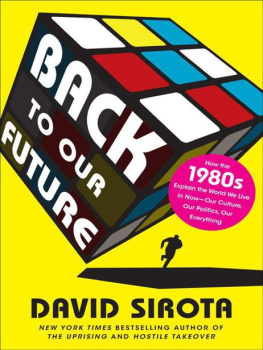
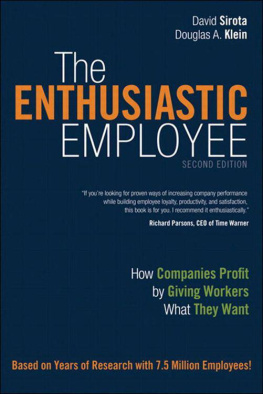

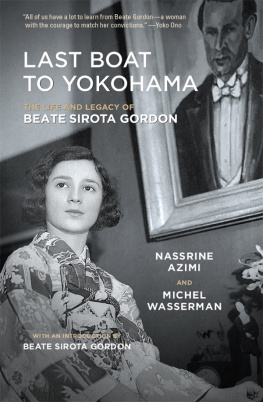

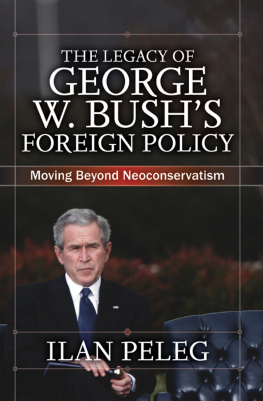
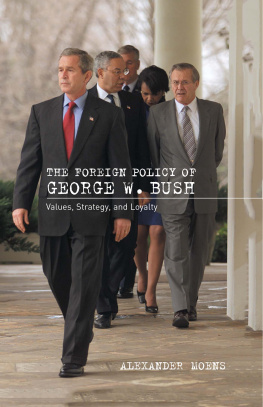
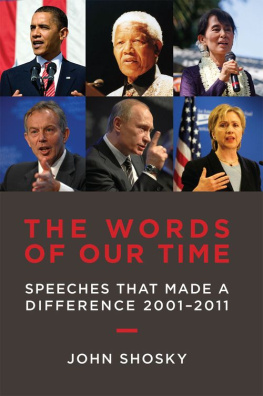
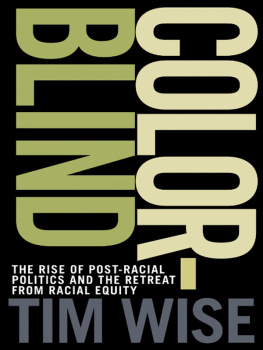
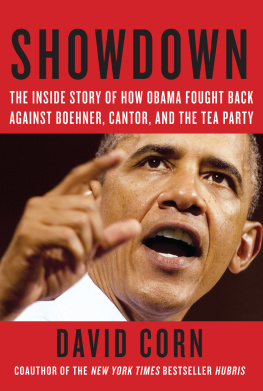



 or as long as I can remember, I have never seen the 1980s as an era or a historical moment or, God forbid, a period. To me, the decade has always been a language. I dont remember the 1980s as much as I speak it and think in it. As anyone who has seen me around my two brothers knows, I mean this quite literally.
or as long as I can remember, I have never seen the 1980s as an era or a historical moment or, God forbid, a period. To me, the decade has always been a language. I dont remember the 1980s as much as I speak it and think in it. As anyone who has seen me around my two brothers knows, I mean this quite literally.